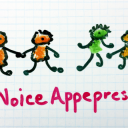

Video games have come a long way since their inception. The journey from simple pixelated graphics to immersive virtual worlds has been a remarkable testament to human creativity and technological innovation. One aspect that has seen significant advancements and has attracted tremendous attention is the role of Artificial Intelligence (AI) in the development of immersive, believable and interactive characters. With the advent of advanced language models like Chat GPT, developed by OpenAI, the domain of character AI in video games has gained a new edge. The possibilities for character AI, with the power of these sophisticated models, appear to be endless and hold a promising potential to revolutionize the gaming landscape.
Chat GPT, short for Chat-based GPT, is a revolutionary language model developed by OpenAI. It builds upon the foundation of the GPT (Generative Pre-trained Transformer) architecture, which has been meticulously fine-tuned using extensive amounts of text data. The model has an exceptional ability to generate human-like responses, making it an ideal candidate for creating conversational agents and developing interactive applications. This transformative model has the potential to redefine how we interact with digital interfaces, and notably, the characters in video games.

In the early stages of gaming, character AI heavily relied on predefined scripts and limited dialogue options. While this approach was able to provide a certain degree of interactivity, it often culminated in repetitive and predictable interactions, which could hinder the gaming experience. With the emergence of Chat GPT, developers now have access to a robust tool that can generate dynamic and engaging conversations between players and in-game characters, fostering a more realistic and captivating gaming environment.
The integration of Chat GPT into the sphere of game development heralds a new era for character AI, opening up a world teeming with possibilities. Here are some key ways in which Chat GPT can enhance and revolutionize the gaming experience:

Chat GPT brings with it the power of understanding and responding to natural language inputs from players. This means that players can engage in conversations with characters using their own words, phrases, and colloquialisms, and can expect to receive contextual and relevant responses. This level of interaction far surpasses traditional dialogues and creates a more immersive and realistic gameplay experience. Characters feel more lifelike, each interaction is unique, making the game environment more engaging.

With the assistance of Chat GPT, game developers can breathe life into characters with the ability to generate dynamic and contextually appropriate dialogues. The model can glean insights from existing conversations and modify its responses based on the player's actions, choices, and overall game progress. This results in a more personalized and engaging gameplay experience, where characters can recall previous interactions and respond accordingly, thereby bringing a novel layer of depth to character interactions.

Non-Player Characters (NPCs) play a critical role in shaping the game world and providing players with meaningful interactions. Chat GPT can imbue NPCs with more adaptive behaviors and responses. NPCs can learn from player preferences, adjust their personalities, and even simulate emotions in their interactions, creating a more holistic and believable character. This adds a newfound depth and complexity to the game world, making it feel vibrant, alive, and responsive.
The process of integrating Chat GPT into game development is not without its challenges, requiring careful planning and strategic implementation. Here are some steps to consider:

For successful integration, developers need to embark on a journey of collecting and preprocessing data to train the Chat GPT model effectively. This data can encompass existing game dialogues, a vast range of player interactions, and other relevant sources that mirror real-world conversations. It is crucial to ensure the data is diverse, high-quality, and representative of the desired in-game conversations to maintain a level of believability and immersion in the gameplay.

The collected data serves as the foundation for training and fine-tuning the Chat GPT model. This process, while intricate, involves optimizing the model's parameters and performance to generate high-quality, contextually appropriate, and engaging responses. It may require multiple iterations, continuous experimentation, and fine adjustments to achieve the optimal level of character AI that can bring games to life.

Once the model is trained to satisfaction, and fine-tuned to fit the game's requirements, it needs to be integrated into the game engine. This integration involves developing an API or middleware that facilitates the real-time interaction between the game and the Chat GPT model. The integration process should be seamless and efficient to ensure smooth gameplay and facilitate compelling character interactions that captivate the players and enrich their gaming experience.
Chat GPT has the potential to transform the character AI landscape in video games. With its natural language processing abilities and dynamic dialogue generation, it can create engaging and immersive gaming experiences. By integrating Chat GPT into game development, developers can unlock new possibilities for interactive and lifelike characters. However, careful training, implementation, and fine-tuning are required to ensure the best results. Embracing AI in game development opens up a world of creativity and innovation, where players can truly immerse themselves in virtual worlds populated by intelligent and responsive characters.